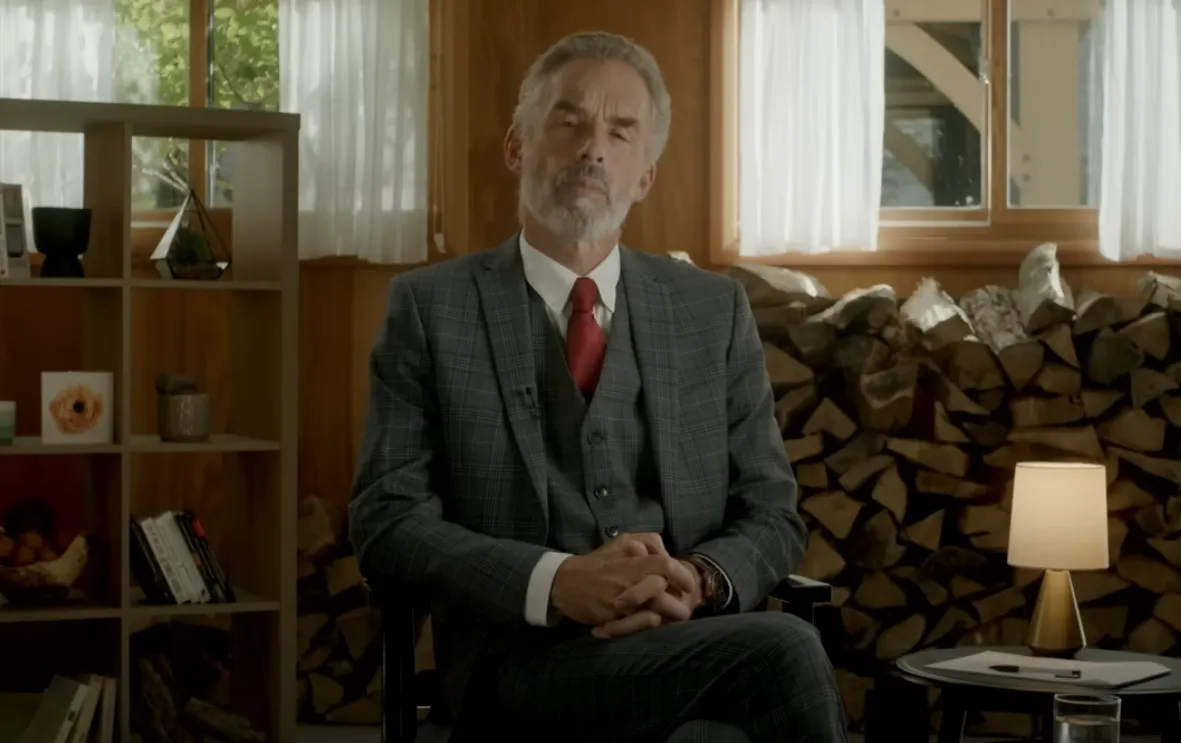Everyone’s favourite Canadian Kermit has decided to build on the success of his pop psychology literary career and has released the so-called Conservative Manifesto. You can listen to him read out parts of it here and here – these two parts are just over an hour’s worth of listening, all up, but to summarise they are an unreasonably overcomplicated restating of what most ordinary people already believe. How is that a problem, you may ask. This kind of linguistic complexity is common when someone is deliberately trying to obfuscate something. In this case, Peterson is trying to hide the true foundations of common, instinctive beliefs that most Western people have, by explaining these beliefs and their interplays in the most abstract, bloated way possible. He has to hide them like this because they are natural, and the natural world is wholly illiberal. He is afraid to dig beneath the surface, because he knows he’ll be wrong.

Whereas the 12 Rules for Life and its followup were quite accessible, Peterson seems to have taken a messianic turn for the worse and has seen fit to take on the mantle of defining some kind of new direction for where right-leaning politics should go – that’s what manifestos are for, after all. Sadly the whole thing is caught up in trying to tie together free markets, merit-based social order, “freedom” as a general sense of self-restrained entrepreneurship, and all those really boring, safe, Ben Shapiro conservative talking points. It’s a materialist code of ethics that eschews God being an immaterial, transcendent being, instead seeing God as an expression of natural selection and evolutionarily-adaptive behaviours. Although there’s no disputing that God’s influence on our material universe is wildly beyond our understanding, this is more than that, it’s a big-brained atheist way of explaining away that yearning feeling they get when walking into a beautiful old church. It’s the same feeling that made Stefan Molyneux break down in tears when he went to Poland and was surrounded entirely by white people for the first time in his life (I wish I had a link for that, but as with all things in the Current Year it’s getting harder to actually find these things). Are there material explanations for these transcendent things? Maybe, but are they adequate? Not at all.
Tortured language like Peterson uses is an expression of a deep and profound struggle. A person only twists and stretches their speech when they are themselves feeling twisted and stretched about an idea – this is obvious, because otherwise they’d just say the straight truth. But the truths that conservatism builds on are totally counter to Peterson’s own ideals, which is just soft libertarianism. That said, the crux of this manifesto’s issues lies in these three points outlined below:
- Conservatism is the common sense of the common man – you either have it or you don’t. This is not intended to be demeaning, but there isn’t really any thought behind it to begin with, it’s instinctive behaviour and that’s a good thing. Nobody is converted to conservatism unless they are already oriented that way. No manifesto is going to be very good at explaining this without being overly verbose, which is exactly what Peterson comes up against. On some level he is explaining what most people already believe, which begs the question as to why he feels a need to do it at all. The answer may be that it’s intended to convert leftists, but time has shown that the only thing which converts them from their ways is hard experiences which end in death – that of their beliefs or themselves.
- The Manifesto is fundamentally liberal and centred on free markets, free choice, free association, etc. What he’s trying to conserve is water at the boiling point, halfway between steam and liquid. Conserving the liberalism of the last few decades is like catching lightning in a bottle. Trying to explain axiomatic common sense can only lead to confusion without acknowledging the politically incorrect nature of reality. Digging deeper into the actual roots of this common sense leads people further to the right, so he can’t do that, instead he just reiterates very basic mainstream conservative talking points in the most flowery language possible. All JP can do is sell soft libertarianism in verbose language, explaining what it does rather than why. He’ll spend a long time explaining the power of cooperation in his idealised society, but why is cooperation taken to be a universal value? There are many cultures around the world where cooperation has a very different meaning, or simply isn’t practiced at all. What he means is the kind of cooperation that was required in order for white people to survive in the frigid climates of Europe, and which has thus become an innate behaviour for people of European descent. To some extent, you can’t even socialise someone into that behaviour, which is why you end up with extreme examples like Bilal Skaf who was born and raised in Australia but still demonstrates behaviour common to the Middle East. To be fair, many people socialise into Western values far better than he did, but left on their own they don’t continue the behaviour indefinitely, and will instead fall back on instinct.
- You can’t get anything out of this, because the fundamental message is “keep living a normal life.” The problem is that all effective manifestos contain some form of radical exhortation. The Communist Manifesto is radical and calls for worker uprisings. Industrial Society and its Future calls for complete dismantling of technological systems. Peterson positions himself as an anti-radical as a matter of principle; he often shows himself to be the moderate, tempering choice, defusing any righteous anger that normal people may have and stopping them from doing something about it. The next time you think of looking up Peterson’s opinion on a social issue, first ask yourself “What would I say if I were aiming to achieve the least amount of change possible?” All of Peterson’s advice ends up being the moral equivalent of telling people to just keep working at their family’s corner store during the Bolshevik Revolution. Unfortunately that doesn’t work, because we’ll all be declared kulaks soon. What should terrify us all is that Peterson knows this, since he talks about Alexander Solzhenitsyn at length (at least, all but that one book…) and the injustice and cruelty of the totalitarian Soviet system. And yet, to we who are the modern-day equivalent of the owner-operators that were declared “Enemies of the Revolution” and shot for having the gall to own a business, all Peterson can say is “just keep doing what you’re doing,” as if being normal is going to save you from ruthlessly abnormal people. They are radical, and they are coming for us.
In summary, who will read the Conservative Manifesto? People who already agree with it. What does the Conservative Manifesto explain? Things you already know. How does the Conservative Manifesto encourage you? By telling you what you’re already doing is fine. If it had been written 300 years ago it would probably be considered an important, foundational work of enlightenment thinking, but as it stands it’s way too late in the game to be saying any of this stuff. Read Harassment Architecture or Bronze Age Mindset instead.
Originally published at Mike Rusade’s Micro Crusade.










